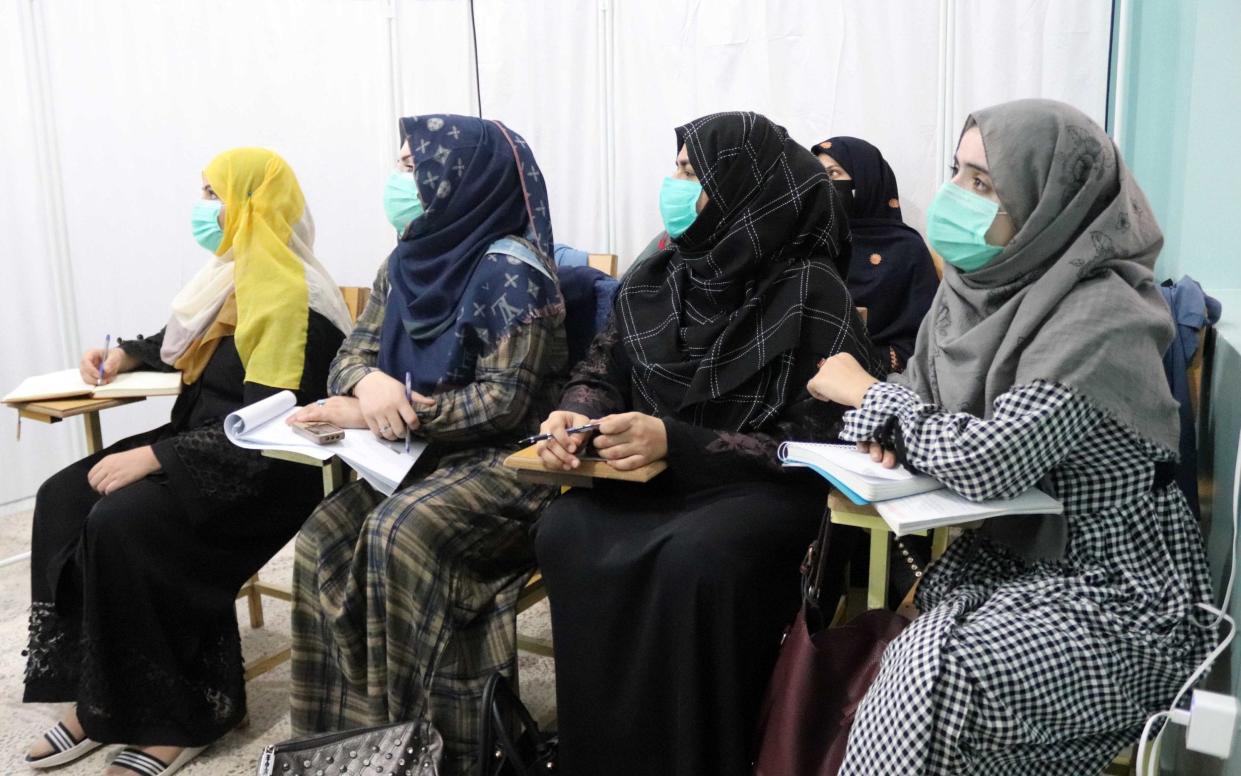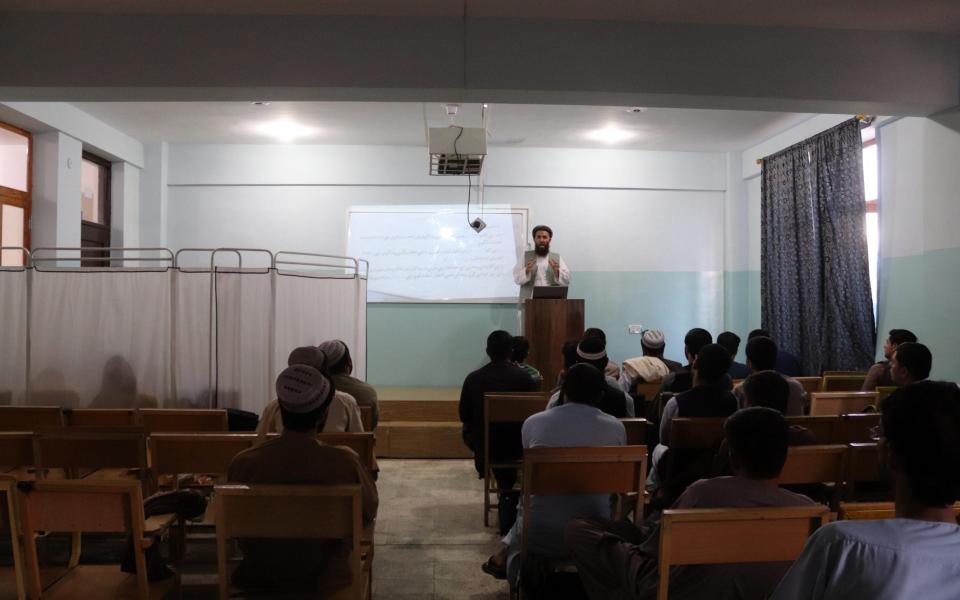‘All my dreams have fallen down’: Girls’ education in limbo in Afghanistan as boys return to school

Since the Taliban took over Afghanistan, Sana has been forced to sit at home and brood on whether her plans for study and a career are now destined to remain just dreams.
School for the 14-year-old and all her female secondary school classmates has been on hold since the insurgents resumed power and re-established their Islamic emirate.
Last week she had the frustration of seeing boys her age in the eastern city of Jalalabad resume classes, while girls are still being kept out of the classroom.
“I had many plans for the future,” she told The Telegraph. “I was not thinking that my plans will remain like dreams. I had a plan that I will graduate and want to be female engineer in the future, but unfortunately all my dreams have fallen down.”
More than a month after the Taliban took charge of the country, they have yet to fulfil assurances not to repeat their 1990s ban on female education. While primary schools are open to both boys and girls, secondary schools were closed until earlier this month. They reopened only to boys, leaving around a million secondary schoolgirls shut out from education.
“We asked our teachers many times: ‘When will be our schools reopen?’ They told us we have no idea, the Taliban will decide this,” says Sana.

Rather than study with her friends, Sana instead sees her days crawl by at home. Even if she were able to finish school, the Taliban's removal of women from the workplace has put her chosen career in jeopardy.
“My mother explained everything to me that the Taliban will not allow this for you. I was shocked. What should we do? We will be housewives like our grandmothers.”
Her parents have no remedy. “They told me: ‘We don't have any other option. We have to suffer all these problems’.”
A ban on girls' schooling was one of the most notorious restrictions imposed by the Taliban during their 1990s regime. Under the group's strict social rules and interpretation of Islam women could not leave the house without a male family chaperone and they were also banned from the work.
For years Taliban envoys have said their strictures on education were a mistake and they were not seeking to reimpose them. Earlier this week Zabihullah Mujahid, chief spokesman for the Taliban, told reporters: “In the case of schools [for female students], the Ministry of Education is working hard to provide the ground for the education of high school girls as soon as possible, work is under way on the procedure, and it is hoped that this will be done, God willing,” he said.
But the excuses for delays, including the need to partition classes or provide a “safe environment”, fail to reassure many. Classes were already segregated between boys and girls, while the Taliban made similar excuses about security in the 1990s.
In the meantime, school girls see their ambitions being crushed.
“I wanted to be a doctor and help my poor nation, I wanted to do something great,” said Marwa, a 16-year-old from the Western city of Herat.
“Now, I am not sure of my future, I don’t know what will happen to us. I don’t know if I am ever going to be able to pursue my career and dreams. I want to study but I don’t know when or how or where because currently, in Afghanistan being a girl I can not continue my education.”
School attendance for girls soared after the Taliban's first government was swept away in 2001. More than 3.6 million girls enrolled by 2018, some 2.5 million in primary school and over one million in secondary.
Far more boys attended secondary school than girls, but the increase in girls was particularly marked, with nearly 40 per cent enrolled in 2018 compared with 6 per cent in 2003, according to the United Nations.
If the Taliban continue to keep girls out of classrooms, it is unclear how much leverage countries like the UK or America might be able to exert with the lure of aid money and international recognition.
Even the countries deemed closest to the Taliban leadership have said they want girls back at school.
“The statements they have made since they came to power have been very encouraging,” said Imran Khan.
“I think they will allow women to go to schools,” Pakistan's prime minister Imran Khan said earlier this week. “The idea that women should not be educated is just not Islamic. It has nothing to do with religion.”
Meanwhile, Maryam, a 17-year-old living in the capital, Kabul, now has nothing to do except help her mother with chores.
“Every day we are asking our teachers, principal and classmates about the reopening of our school, but all of them answer the same way: We have no idea. Some of our teachers said that our school might not be reopened,” she says. .
“I had many plans for the future. I wanted to be TV reporter from a very small age, but I don't know if it would be possible or not. As I see the real face of the Taliban, it will not be possible. I am at home and make myself busy, studying my school books and story books. I am very sad for my country, for my people and especially for women.”
Protect yourself and your family by learning more about Global Health Security

